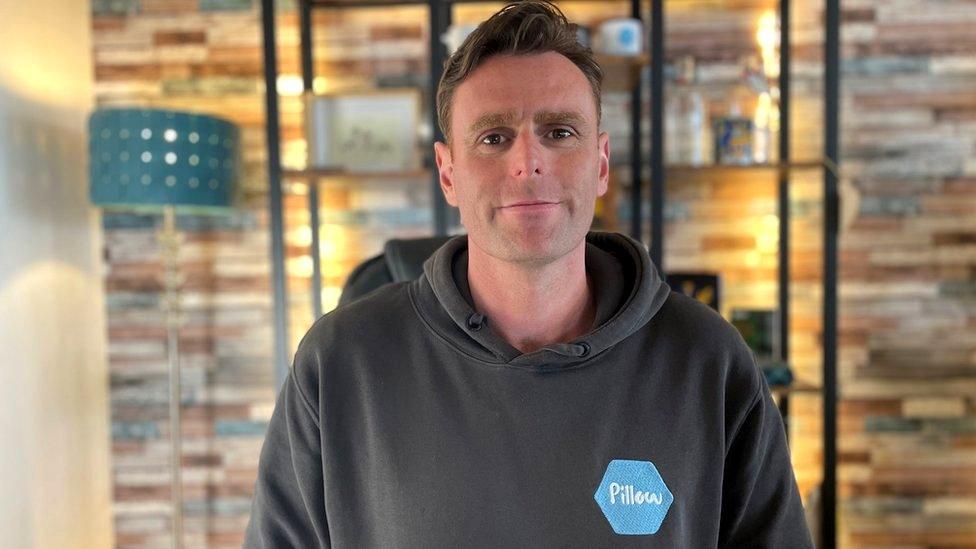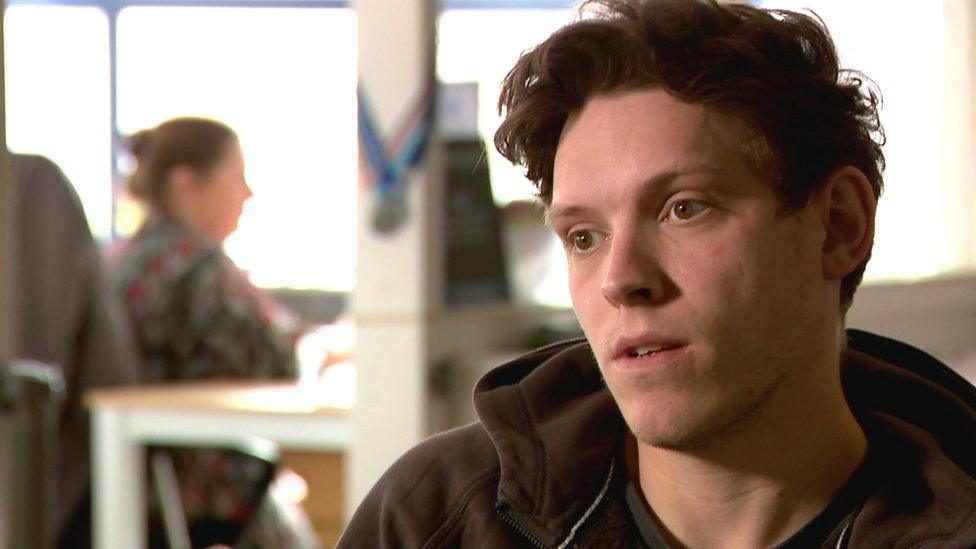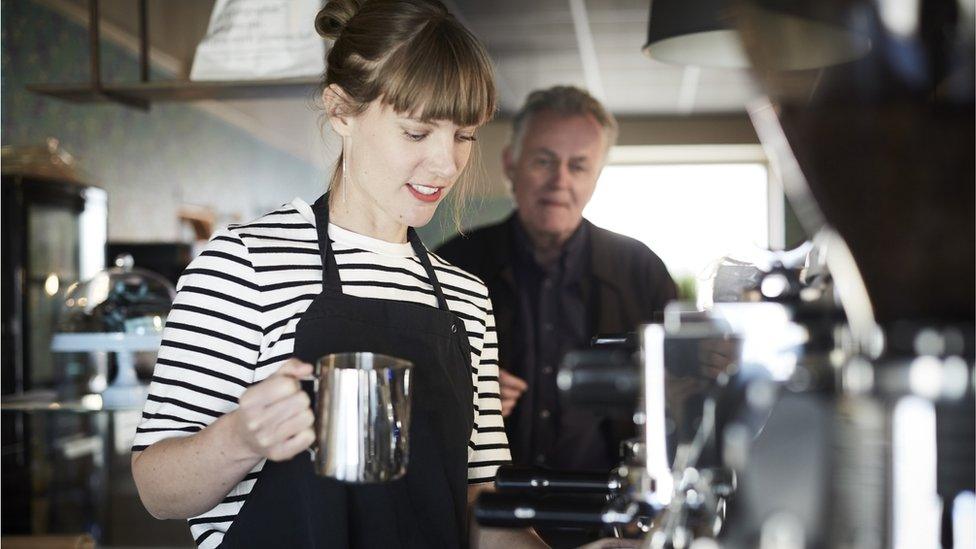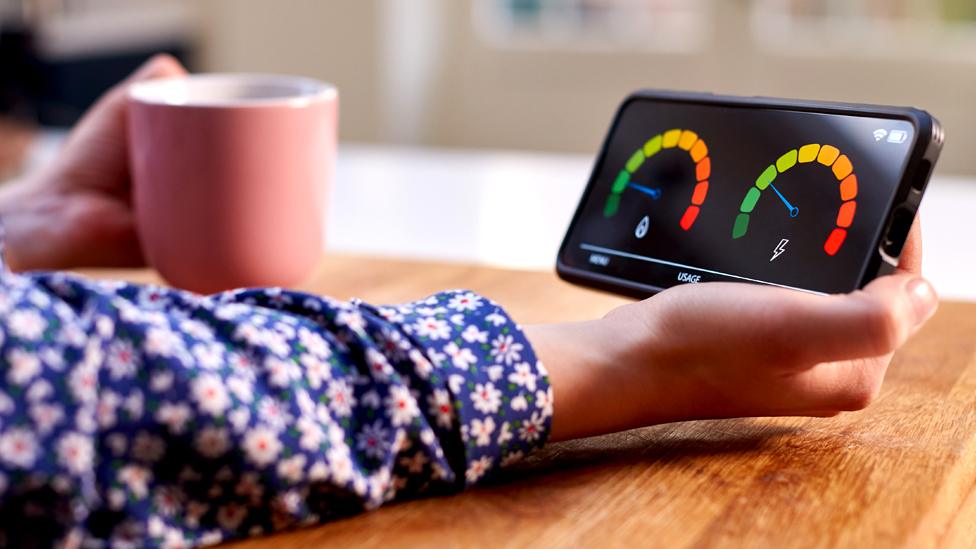National Insurance rise: How will it affect companies in Scotland?
- Published

Scott Weir was hoping to expand his business quickly as tourism picks up after the pandemic
Another day, another rise. Employers and workers have been getting to grips with a contentious increase in National Insurance payments as a new tax year begins.
Both businesses and employees are feeling fatigued at the financial stress, with almost everyone seeing their contributions going up.
A small business I visited in South Ayrshire told me the NI rise compounded an already troubling time with energy and other costs soaring.
The employer - 'These small changes make a massive difference'
Scott Weir is founder and chief executive of Pillow Partners - a short-term lettings agency based in Dundonald, South Ayrshire.
He said energy bills for its offices were going to "at least double", while employees were "anxious" about rising fuel costs.
He anticipates payroll costs going up with the rise in National Insurance - a third of his staff are in the higher-rate tax bands - and to help them cope with inflation at more than 6%.
"These small changes make a massive difference when it comes to payroll and additional taxes. We just need to be safe," he said.
Mr Weir said he had been planning to go from 28 staff members to 50 by the end of the year.
"We had already started some recruitment and had some really good candidates lined up but some can't come because of the travel costs.
"We are going to recruit at least one person less each month over the next few months.
"We need to look at increasing their wages in line with inflation and the minimum wage is also going up as well - all these things are happening in the same month."
Employees pay National Insurance on their wages and employers pay extra contributions for staff.
Employees, businesses and the self-employed will all pay an extra 1.25p in the pound.
In September, the government announced the rise in contributions from 6 April.
So now, employees will pay contributions on earnings above £9,880 a year. From July, it will be paid on earnings above £12,570 a year.
Cost onslaught
Taken together, the changes - which affect everyone in the UK - mean that over the next 12 months, anyone earning less than about £34,000 a year will pay less in NI than the previous year, while those earning more than £34,000 will see their payments rise.
That will mean some of the lowest paid will see a few hundred pounds back in their pockets.
The UK government said the additional money would go into helping health and social care changes in England and that additional cash would flow to Scotland to be spent by Scottish ministers.
But there's a growing fear that companies who just about survived the pandemic will end up closing as the cost onslaught continues to pile up.
As a business linked to tourism, Mr Weir said it had been "totally dead" over the last two years.
"We have been waiting to jump back into action and employed lots of new staff over the last few months but now we can't expand as fast as we could have," he said.
"As we came out of lockdown there was a real sense of excitement but now things have started to slow down again and people are being very cautious with their money."
The employee - 'Do we really need the heating on?'

Jonny Griffen says he will have to be careful with his monthly expenditure as he saves for his wedding next year
Jonny Griffen, 31, recently joined Pillow Partners as a community engagement manager.
He said it was too early to assess the impact of the change to National Insurance but he was already preparing to make sacrifices.
"When you add it on top of the rising fuel costs, gas and electric, council tax, it is just another added expense, isn't it? All these things are going up at the same time so the biggest challenge is budgeting everything.
"Everyone has a certain standard of living and I wouldn't say mine is particularly glamorous. I don't jet off to exotic countries every month and I am not decked out in the nicest clothes.
"We'll probably be thinking 'do we really need the heating on at this time of night, or at this time of the morning?' Hopefully we get a good summer so people who have to make hard choices are not going to be cold.
"Obviously nobody wants these rises but at the same time there is no denying what has happened in the last two years.
"I don't envy the people who have to make the decisions - it is a difficult one - but was it really necessary right now? I would say probably not."
Related topics
- Published6 November 2022

- Published1 April 2022

- Published1 April 2022
